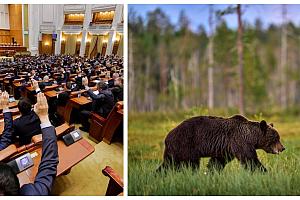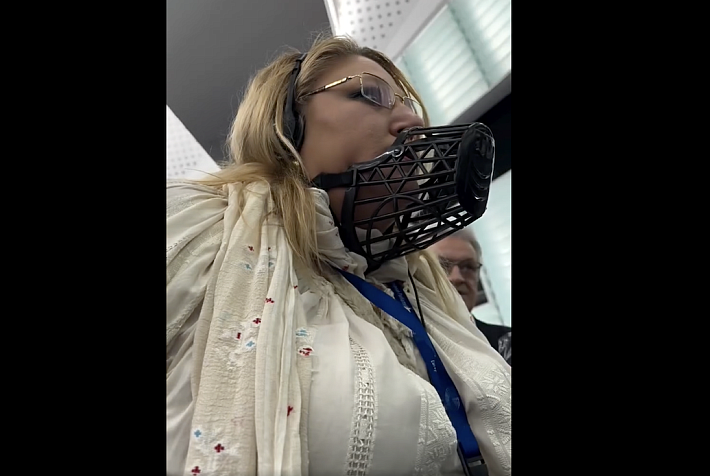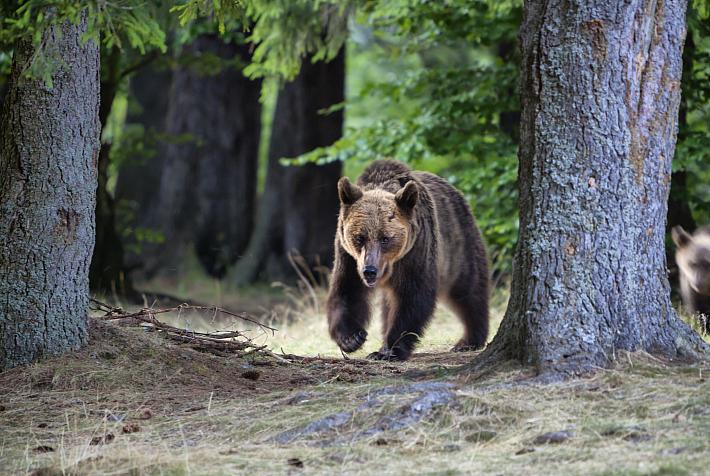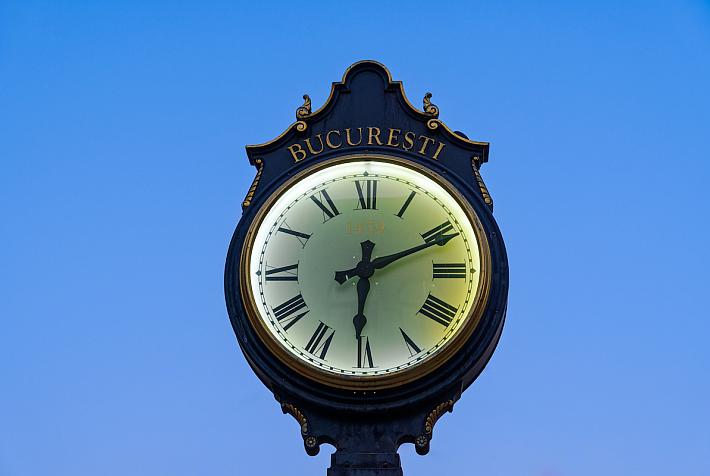Romanian Parliament votes to increase hunting quota for brown bears
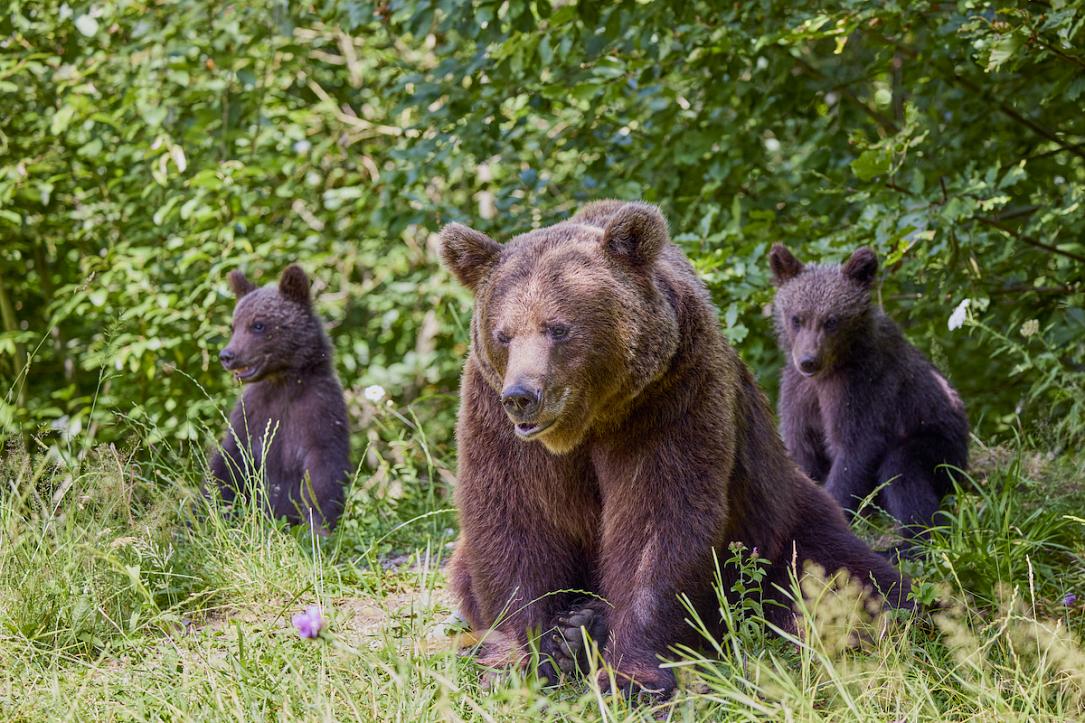
A draft law with measures to manage the bear population in Romania passed the Parliament on Monday, July 15, with 214 votes to 7 and 23 abstentions. The bill, which came again into focus after the recent deadly attack on a hiker in the Carpathians, increases the hunting quota for the brown bear to almost 500 from the current 220. However, environmental groups say hunting is insufficient and should not be the first solution to lower the number of bear attacks or sustainably manage the population.
The project was adopted during an emergency session of the Parliament, summoned by prime minister Marcel Ciolacu following the death of a 19-year-old tourist who was attacked by a bear on a popular mountain trail in the Bucegi mountains. The MPs also held a moment of silence in the girl's honor.
The project allows the killing of 426 brown bears for prevention and 55 bears as part of the intervention quota in 2024-2025. The animals can be shot by hunters, including those who are not part of the specialized technical staff, as before, at least on the prevention level. This includes foreign hunters.
The project must also be signed into law by president Klaus Iohannis to come into force.
Every year, the Ministry of the Environment sets the number of bears that could be shot, as they are a protected species. The current allowed quota targeted 220 individuals. That comes amid estimates of the ministry saying that up to 8,000 brown bears are roaming the forests of Romania - an "overpopulation" that the bill's initiators say should be controlled and reduced to lower the number of attacks and dangerous human-bear interactions.
Environment minister Mircea Fechet reacted to the recently passed law, saying "it is not enough" as it can't guarantee people's safety. He believes that it is necessary to start solving the situation with "problem bears" that attack people's households and with those that got used to being fed by humans.
"(The law) is more than what we have today, but nothing can guarantee, much less a law like this, that if we shoot 500 bears out of the 8,000 we think we have today, we might not solve the problems we're facing […]. But one thing is certain: we can't guarantee that anyone walking through the woods won't come across a wild animal, whether we're talking about a bear or some other animal," Fechet told Digi24, according to News.ro.
In his turn, former environment minister Barna Tánczos, one of the bill's initiators, said that hunting means controlling the population of brown bears.
"The reintroduction of hunting means the reintroduction of bear population control in Romania through hunting. This was abolished in 2016 without any impact study […] on what a human exit from controlling the brown bear population in Romania might mean. All EU member states facing similar problems have hunting. Because the bear is a species at the top of the food chain and has no other enemy than man," he said.
Moreover, the former minister also referred to paid hunting trips, which, he says, could mean that "foreigners also come and bring money to Romania. "Hunting, as an activity, can also mean economic development, it can also mean money, it can also mean tourism," he mentioned.
In a reaction for Euronews Romania, the European Commission noted that trophy hunting (which some say may happen in the context of the new law) is prohibited, as the brown bear is a strictly protected species.
"After reviewing existing knowledge, it appears that proactive measures should be prioritized to prevent conflicts with bears. Such proactive measures include preventing damage to agriculture, preventing access to waste and other sources of human food, information campaigns to correct inappropriate human behavior (such as feeding bears), and emergency response teams. Trophy hunting in the case of bears contravenes EU legislation, as the brown bear is a strictly protected species in the EU," the EC said.
Meanwhile, environmental NGOs and specialists argue that a different and more complex approach is needed in response to the radical solutions proposed by the law, with other measures including better trash management, prevention, or education of residents and tourists. NGOs are particularly concerned with the fact that trophy hunters will use increased bear hunting quotas to go after the largest bears and not the ones that actually threaten human life.
"Unfortunately, nobody knows the exact population of bears in Romania nor how many specimens the habitat can take," Foundation Conservation Carpathia, a private conservation group, told Reuters. "The number of problem bears and the damages they cause fluctuates yearly and is not directly proportional to the rise in bear density."
Agent Green has also harshly criticized the bill, saying it should "end the human-bear conflict, not satisfy the bloodlust of hunters." The non-profit also started an online petition asking Parliament not to legalize trophy hunting, which has gathered more than 82,000 signatures so far, in addition to notifying the European Commission about the recently passed law.
Moroever, Agent Green has sued the Ministry of the Environment "because it has blocked the action plan for the bear for 6 years and is waiting for the end of the trial in which the justice system in Romania forces the government to implement its own law."
Alex Găvan, conservationist and founder of Together for the Green Belt Civic Platform and Asprete Lives project, also questions the new law's success in such a complex situation, mentioning the possibility of it actually clearing the way for trophy hunting.
"The law voted yesterday in an extraordinary session of Parliament is far from addressing the substance of the problem," Găvan said, noting that it seems to be rather a move aimed at calming "the inflamed spirits following the recent tragedy in Bucegi" and shifting the attention from the authorities' failure to take concrete measures.
Plus, he also mentions the National Action Plan for the conservation of the brown bear population in Romania, made with European money and approved by ministerial order in June 2018. Still, for years, this plan got stuck while the authorities focused mainly on setting up hunting quotas.
"Bear management must be done starting from that action plan and taking into account biologists, ecologists and other scientists […], but, at the same time, it requires concrete actions from the authorities and not only to prevent conflicts but also to educate society in this regard, exactly as it happens in civilized countries, with the US and Canada being only two examples that have a significant bear population. The fate of bears cannot be decided by the trophy hunting industry," he stated.
Moreover, he says, not applying the action plan approved six years ago and approving this law may translate into a new infringement procedure against Romania.
WWF Romania also noted that hunting is insufficient to sustainably manage the bear population and keep bears away from communities.
"There are some aspects without which, no matter how many laws we pass, no matter how many bears we shoot, we will not be able to solve the problem of man-bear conflicts in the long term. And here we are primarily talking about the management of attractors, such as that of waste, of the complementary food offered near towns in the feeding or observation points of the bear, or, irresponsibly, by tourists," said Cristian-Remus Papp, Wildlife Department Coordinator, WWF Romania.
Feeding the bears changes the behavior of the wild animal, which, in turn, is dangerous for both the bears and the people. "A common effort" is needed to protect life and property, to enjoy the wealth of nature in complete safety, Papp said.
irina.marica@romania-insider.com
(Photo source: Cristianzamfir/Dreamstime.com)







